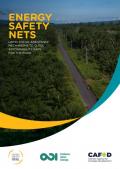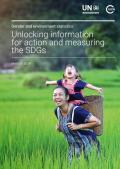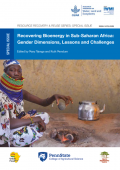
This report synthesises lessons learned from six country case studies from Brazil, Ghana, India, Indonesia, Kenya, and Mexico, and offers recommendations for the future design of energy safety nets.
This paper responds to the global discourse around the need to decarbonize the world’s building stock by 2050 in order to meet global climate goals. It aims to provide clear, feasible policy pathways by which developing countries can achieve net zero carbon buildings (ZCBs) in their cities. The paper provides a starting point for urban decision-makers who are interested in understanding the wide range of policy options available to them.
This report Country Progress Report - Kenya presents a systematic view of progress on sustainable finance in Kenya.

This report proposes 18 gender-environment indicators for inclusion in the wider set of gender indicators across the following focal areas: rights to land, natural resources, and biodiversity; access to food, energy, water, and sanitation; climate change, sustainable production and consumption, and health; and women in environmental decision making at all levels.

This publication focuses on the management of the nexus of energy, food and natural resources in sub-Saharan Africa, with a clear focus on gender roles and implications. It presents case studies that showcase a range of options available to improve biomass use, especially in locations and among populations who currently depend on conventional fuels like firewood or charcoal. Although many of these options are context specific, the provided examples demonstrate that generalizable options exist to improve energy access, reduce waste, protect our soils and empower women.
